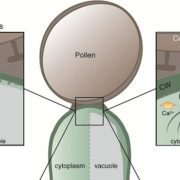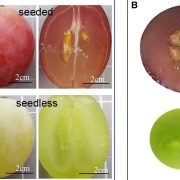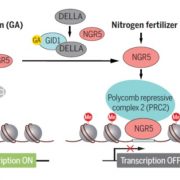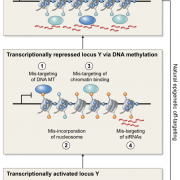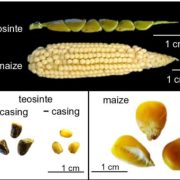Heritable phenotypic variation due to partial maintenance of organ-specific epigenetic marks during asexual reproduction ($) (PNAS)
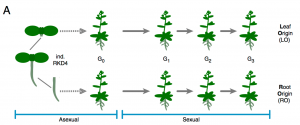 Clonal propagation is widely used by humans to maintain and propagate desirable phenotypic traits in plants. Despite a restricted genetic variety, phenotypical difference, known a somaclonal variation, arises sometimes between parents and the clonally propagated progeny. Some of this variability is attributed to epigenetic variation, but the origins and underlying molecular principles remain unclear. By artificial induction of the ectopic program from either Arabidopsis leaf or root tissue, the authors describe that tissue-specific DNA methylation is partially maintained in the whole clonal progeny and stably transmitted through meiosis. The heritability of tissue-specific DNA methylation is associated with the partial preservation of associated gene expression patterns, translating in new heritable phenotypes. This represents an original strategy to induce trait variation. (Summary by Matthias Benoit).
Clonal propagation is widely used by humans to maintain and propagate desirable phenotypic traits in plants. Despite a restricted genetic variety, phenotypical difference, known a somaclonal variation, arises sometimes between parents and the clonally propagated progeny. Some of this variability is attributed to epigenetic variation, but the origins and underlying molecular principles remain unclear. By artificial induction of the ectopic program from either Arabidopsis leaf or root tissue, the authors describe that tissue-specific DNA methylation is partially maintained in the whole clonal progeny and stably transmitted through meiosis. The heritability of tissue-specific DNA methylation is associated with the partial preservation of associated gene expression patterns, translating in new heritable phenotypes. This represents an original strategy to induce trait variation. (Summary by Matthias Benoit).


